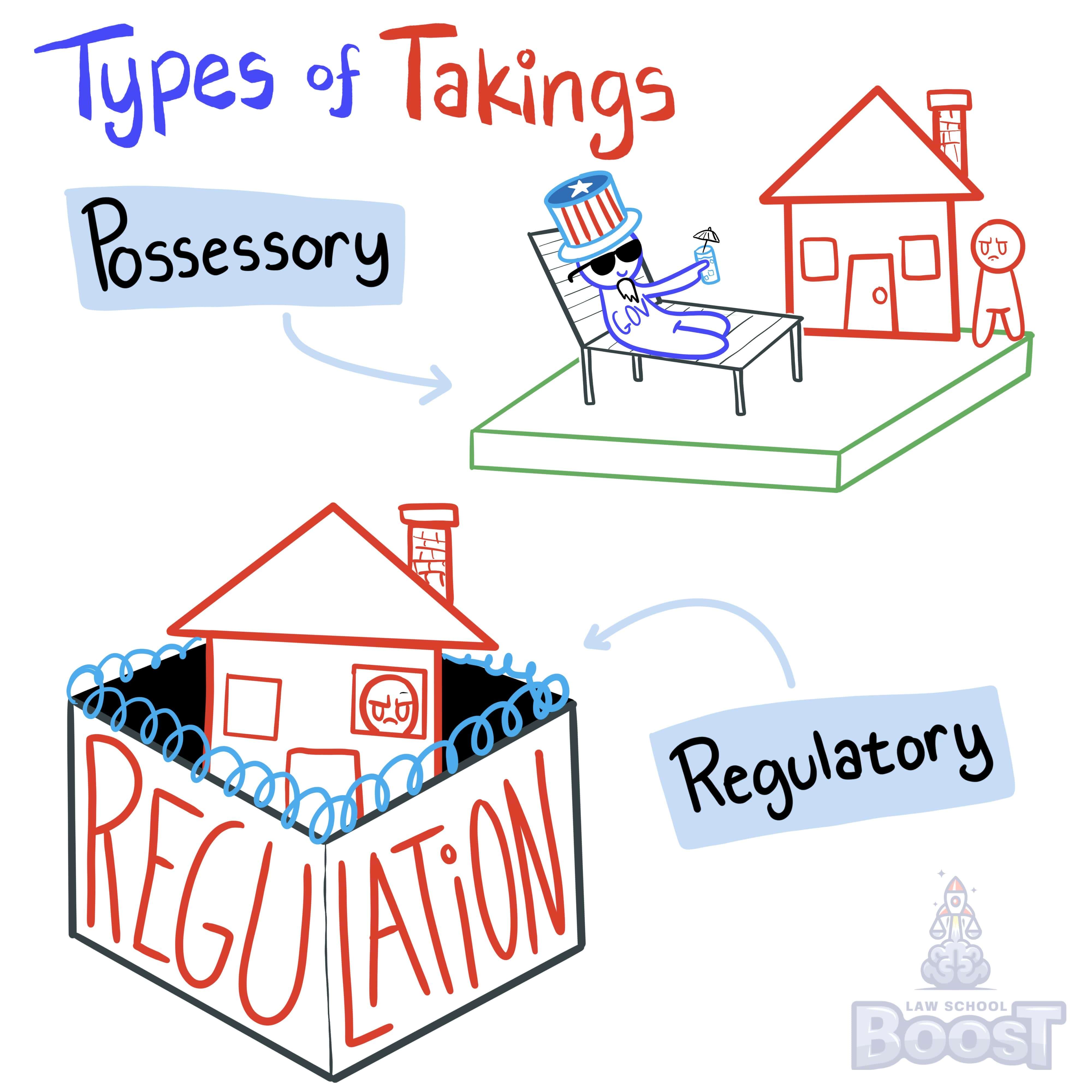🇺🇸
Constitutional Law • Takings
CONLAW#066
Legal Definition
Government conditions on the development of property must be justified by a benefit that is roughly proportionate to the burden imposed, otherwise it is a taking.
Plain English Explanation
The government has the power to tell you what you can and can't do with your property. For example, it can say you have to build a house a certain way or that you can only build on part of your land. But the government can't just limit what owners do for no good reason. There has to be a public purpose, like protecting health or the environment.
Even then, if the limit goes too far, it starts to seem unfair. It can feel like the government is taking away your rights as a property owner without giving anything back. So the law says the government has to balance public benefits and private burdens. If a limit takes away too much from the owner compared to the public good, that's going too far. It becomes an unconstitutional "taking" of property.
Even then, if the limit goes too far, it starts to seem unfair. It can feel like the government is taking away your rights as a property owner without giving anything back. So the law says the government has to balance public benefits and private burdens. If a limit takes away too much from the owner compared to the public good, that's going too far. It becomes an unconstitutional "taking" of property.
Hypothetical
Hypo 1: Amy owns a large parcel of land in HypoTown. She wants to develop it into a 300-unit residential community. When she seeks the development permits, HypoTown says they will only grant them if Amy promises build 3 new bus stops, widen streets, build a small park, and erect a large fountain. Result: The new bus stops, widened streets, and small park are arguably reasonable and rationally related to the impact of Amy's development because 300 units full of people will undoubtedly increase traffic, strain on infrastructure, bus lines, etc. People also need green space in order to stay healthy. Thus, HypoTown will likely be able to force Amy to pay for those things, even if she doesn't want to, in order to get her permits approved. However, the large fountain seems a bit silly and unnecessary, so Amy would likely be able to fight that as being a taking.
Hypo 2: This hypo comes courtesy of my father-in-law and is based on a true experience he had: Amy lives in HypoTown and owns a local hardware store. Next to the hardware store is an empty abandoned lot. Amy decides she wants to expand her hardware store by purchasing the empty lot and developing it. HypoTown tells Amy they will only approve her development if she agrees to build out a large stretch of sidewalk. The sidewalk won't connect anywhere, but HypoTown believes that in the future HypoTown will be a popular destination for tourists and wants to be prepared for them to have somewhere to walk. Result: On a law school exam, this is a great example of a taking, because there is no rational relation between Amy's desire to expand her small business and its impact on the need for a new piece of sidewalk that isn't connected to anything. It's just the government's attempt to get free infrastructure and, on an exam, it would fail. In the real world, unfortunately, the hardware store I'm describing spent thousands of dollars in legal bills fighting the government and, ultimately, was unsuccessful in getting its permits.
Hypo 3: Bob wants to build a small store on his property in Hypofornia. The local government says he can only do it if he adds a public parking lot next to it. The parking lot would serve more people than just his store's customers. Result: This could be a taking because the burden on Bob to build a public parking lot is not proportionate to the benefit his small store would bring to the public.
Hypo 2: This hypo comes courtesy of my father-in-law and is based on a true experience he had: Amy lives in HypoTown and owns a local hardware store. Next to the hardware store is an empty abandoned lot. Amy decides she wants to expand her hardware store by purchasing the empty lot and developing it. HypoTown tells Amy they will only approve her development if she agrees to build out a large stretch of sidewalk. The sidewalk won't connect anywhere, but HypoTown believes that in the future HypoTown will be a popular destination for tourists and wants to be prepared for them to have somewhere to walk. Result: On a law school exam, this is a great example of a taking, because there is no rational relation between Amy's desire to expand her small business and its impact on the need for a new piece of sidewalk that isn't connected to anything. It's just the government's attempt to get free infrastructure and, on an exam, it would fail. In the real world, unfortunately, the hardware store I'm describing spent thousands of dollars in legal bills fighting the government and, ultimately, was unsuccessful in getting its permits.
Hypo 3: Bob wants to build a small store on his property in Hypofornia. The local government says he can only do it if he adds a public parking lot next to it. The parking lot would serve more people than just his store's customers. Result: This could be a taking because the burden on Bob to build a public parking lot is not proportionate to the benefit his small store would bring to the public.
Visual Aids

Related Concepts
Can a property owner challenge pre-existing regulations?
How is just compensation measured?
May the federal government take private property?
What is a possessory taking?
What is a regulatory taking?
When is a temporary denial of use a taking?
When is property considered to have been taken for public use?


